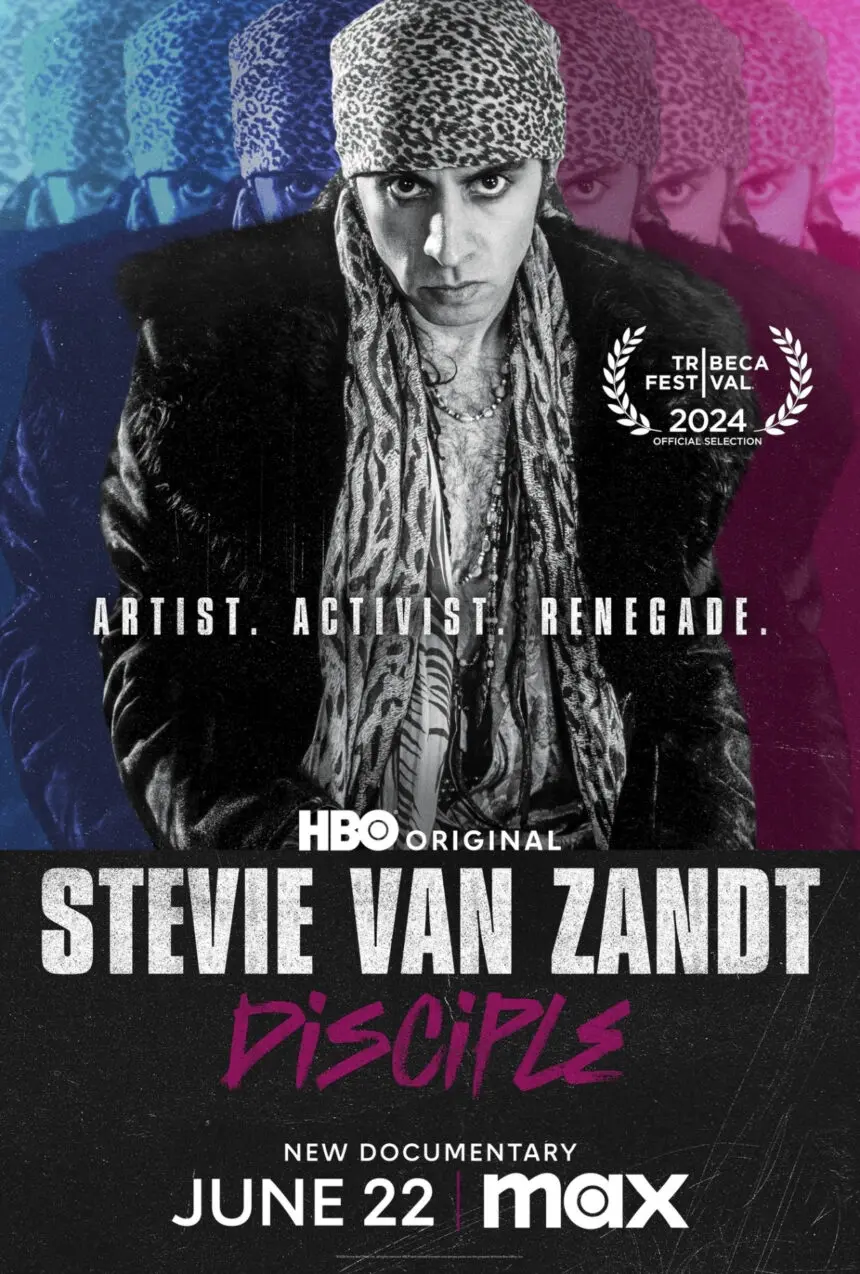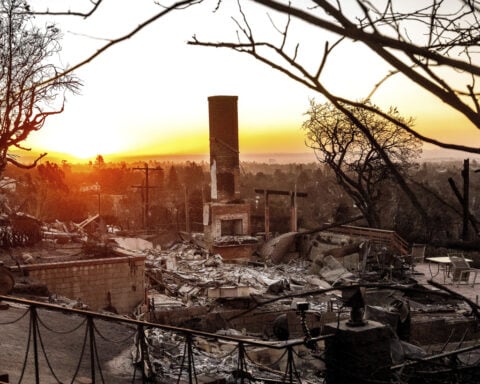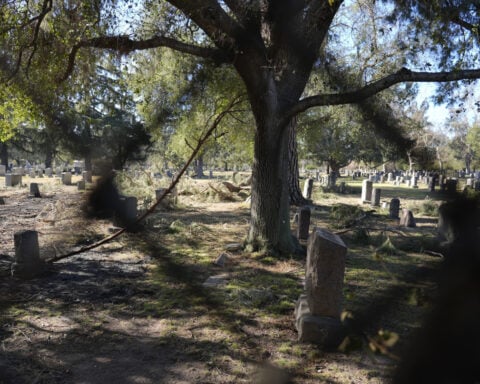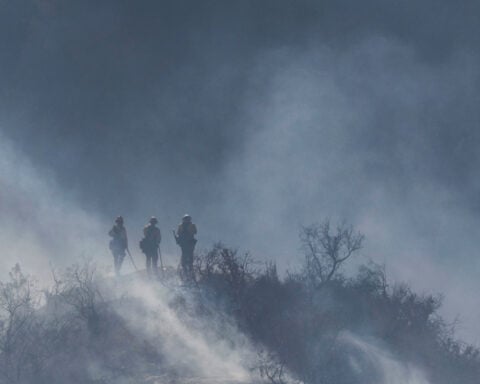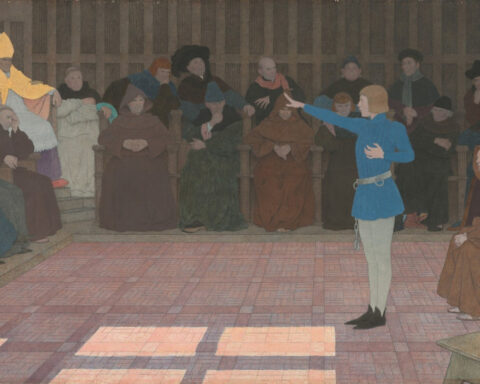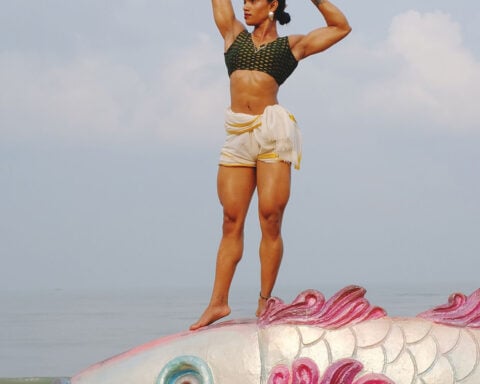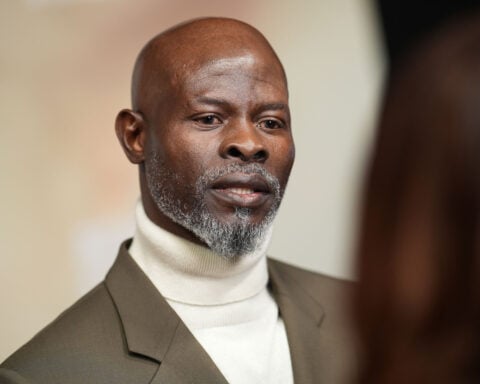NEW YORK (AP) — Steve Van Zandt still looks every bit the rock star.
But underneath his purple headscarf, paisley shirt and snakeskin boots, Van Zandt says he still hates being the center of attention.
“I’m a bit of a contradiction and paradox,” he says, sheepishly laughing after an interviewer notes the musician-actor-activist might be in the wrong lines of work.
Perhaps it should be no surprise that Van Zandt, 73, had to be coaxed into participating in a documentary about his remarkable life and career. The result is “Stevie Van Zandt: Disciple” — which airs on HBO and streams on Max — and covers not only his years as a guitar-jamming singer-songwriter, but also as a music producer, playing Silvio Dante on “The Sopranos,” and his lesser-known roles as an activist, radio host, music educator, and entrepreneur.
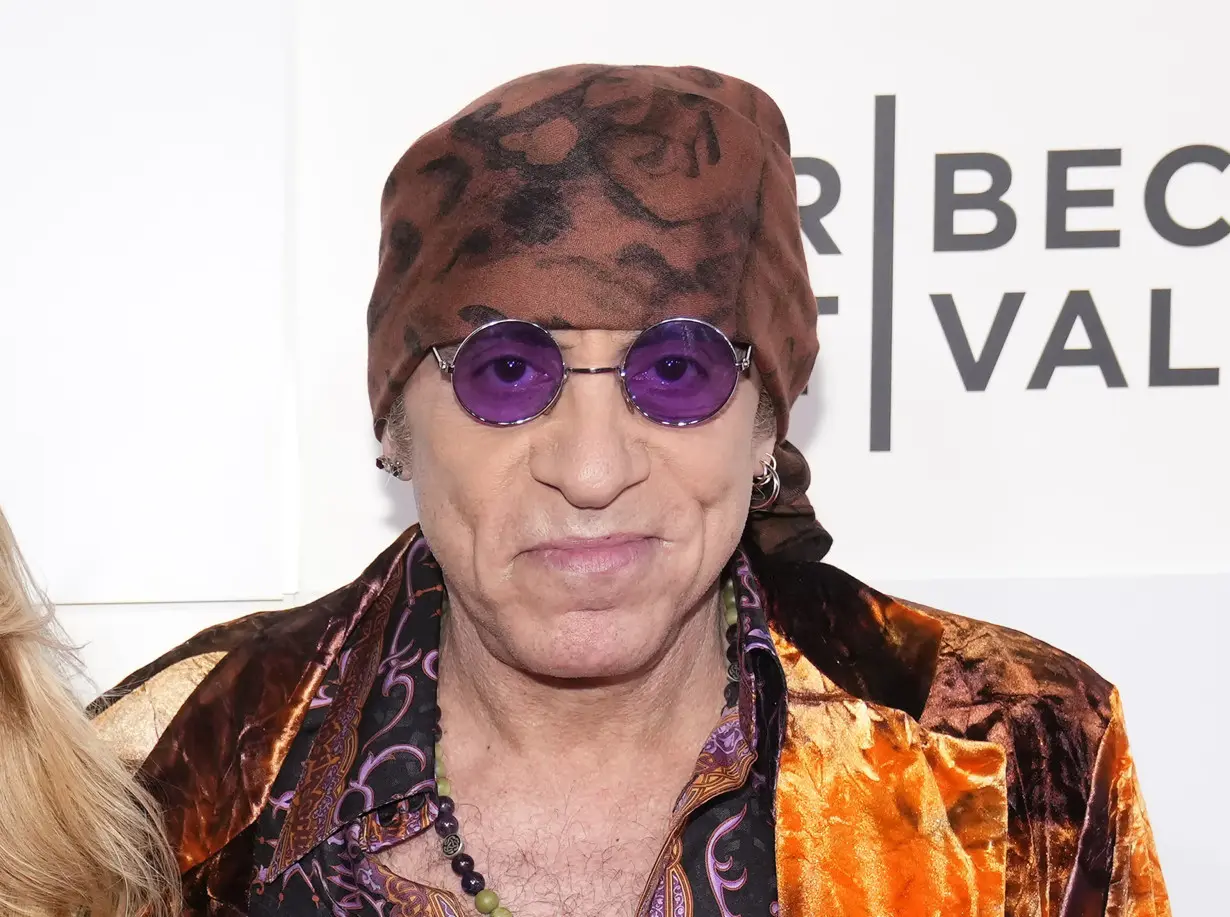
The man affectionately called “Little Steven” by fans says he feels mostly gratitude about the film. “It’s an honor that somebody cared enough about my life to make a movie about it. And I’m happy that the work is going to be seen,” Van Zandt told The Associated Press. “ My other emotion is anxiety ... it’s a little embarrassing and awkward.”
Director Bill Teck, a lifelong fan of Van Zandt’s music, says he started inquiring about a documentary on his life and career in 2006, but received a hard no. After following up every few years, Van Zandt finally agreed in 2018, but he didn’t even want to be interviewed. Teck eventually convinced him audiences wanted to hear Van Zandt's version of how his career in rock evolved — starting with his teen years playing in New Jersey bands, where he met his lifelong friend and collaborator, Bruce Springsteen.
“We were not capable of doing anything else. We were truly freaks, misfits and outcasts,” Van Zandt says. “We were not enamored with the options society was giving us." He recalled the impact bands like the Beatles and Rolling Stones had on him and other Jersey musicians that encouraged them to keep performing. “Suddenly we had a place. We had a little hope,” he says.
The film includes interviews with rock legends — Paul McCartney, Springsteen, Bono, Bill Wyman, Eddie Vedder and more — all raving about Van Zandt’s skills as a producer and writer, but also as a pioneer in rock ‘n’ roll. “It seemed like every rock star in the firmament was eager to speak about Stevie,” Teck says.
Music is central to the documentary, but Teck also spends time on Van Zandt’s activism, especially his integral part in forming the Artists United Against Apartheid in the 1980s. Van Zandt recruited artists, including Springsteen, Bob Dylan, Ringo Starr and Run-DMC to sing on his anthem, “Sun City,” which brought attention to what was happening in South Africa.
“Steve is a guy that will say rock and roll is the greatest tool for social change that there is,” Teck says.
Van Zandt’s involvement also helped influence the U.S. Senate to override President Ronald Reagan’s veto of legislation imposing sanctions on South Africa. “It was a very rare, complete victory," Van Zandt says. "I’m very proud of it.”
“Disciple” also covers the painful period when Van Zandt split with Springsteen and quit the E Street Band just as it was gaining global popularity. He says he hopes to inspire people by all he accomplished after he thought his life was over — including solo music, producing for other artists, and political activism — before eventually rejoining his E Street pals years later.
“The first dream doesn’t work out. Whatever. Hang in there a little bit. If you can avoid being an alcoholic or drug addict and feeling too sorry for yourself and committing suicide — all of which I considered — hang in there and maybe destiny … has something in mind that, you couldn’t have anticipated.”
Van Zandt says he was a friend and confidante to Springsteen and one of the few who was honest with him, even when they had artistic differences. Later in the documentary, he draws parallels when his character, Silvio Dante, became the underboss and consiglieri to mob boss Tony Soprano in “The Sopranos.”
“Once that role … started to be written that way, I’m like, ‘Oh, I understand these dynamics very well. ... I’ve lived my whole life with this.’ So that really helped me, as a first-time actor, to know exactly the dynamics of that relationship— being the only one really capable of bringing the bad news occasionally, because you’re the only one not afraid of them, you know?”
The documentary and Van Zandt’s 2021 memoir provided an opportunity to look back and see professional struggles in a new light. “You don’t appreciate the teenage years because you’re trying to get into the bars. You don’t appreciate the bar band because you’re trying to get into the business and then the business… you want to just get bigger and bigger and have a hit,” Van Zandt says.
“Looking back now … I realize that those are some of the most fun, enjoyable years of my life.”
Van Zandt calls performing “fun and a wonderful way to make a living” but says he gets the most satisfaction from writing, producing and directing music and television behind the scenes.
As for his unconventional wardrobe, he suggests it’s a product of nostalgia. “I think I’m permanently in 1967. That was my favorite year, my favorite era. I love the psychedelic era,” the singer says, describing it as a "liberating, creative time.”
“There wasn’t all of these incredible problems we face now. So it's a little bit of a mental sanctuary in a funny way.”
___
In the U.S., the national suicide and crisis lifeline is available by calling or texting 988. There is also an online chat at 988lifeline.org

 Joe Biden’s record on science and tech: Investments and regulation for vaccines, broadband, microchips and AI
Joe Biden’s record on science and tech: Investments and regulation for vaccines, broadband, microchips and AI
 Meta shift from fact-checking to crowdsourcing spotlights competing approaches in fight against misinformation and hate speech
Meta shift from fact-checking to crowdsourcing spotlights competing approaches in fight against misinformation and hate speech
 Fire tornadoes are a risk under California's extreme wildfire conditions
Fire tornadoes are a risk under California's extreme wildfire conditions
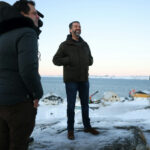 In eyeing Greenland, Trump is echoing long-held American designs on the Arctic expanse
In eyeing Greenland, Trump is echoing long-held American designs on the Arctic expanse
 78 dead at abandoned South Africa gold mine that was scene of a standoff. Toll is expected to rise
78 dead at abandoned South Africa gold mine that was scene of a standoff. Toll is expected to rise
 Poland's leader accuses Russia of planning acts of sabotage against 'airlines around the world'
Poland's leader accuses Russia of planning acts of sabotage against 'airlines around the world'
 Jayden Daniels accomplishes a feat last done by Slinging Sammy Baugh in 1937
Jayden Daniels accomplishes a feat last done by Slinging Sammy Baugh in 1937
 Wildfires latest: A final round of dangerous fire weather and dry conditions is in the forecast
Wildfires latest: A final round of dangerous fire weather and dry conditions is in the forecast
 Kamala Harris memes questioning her cultural background highlight Americans’ contradictions with race
Kamala Harris memes questioning her cultural background highlight Americans’ contradictions with race
